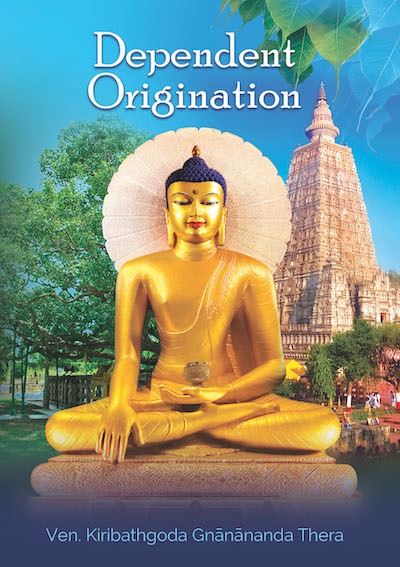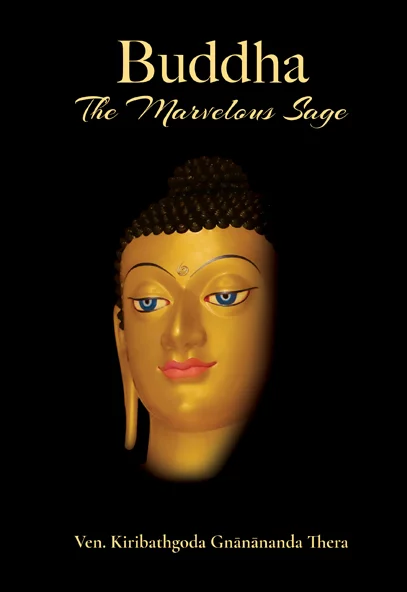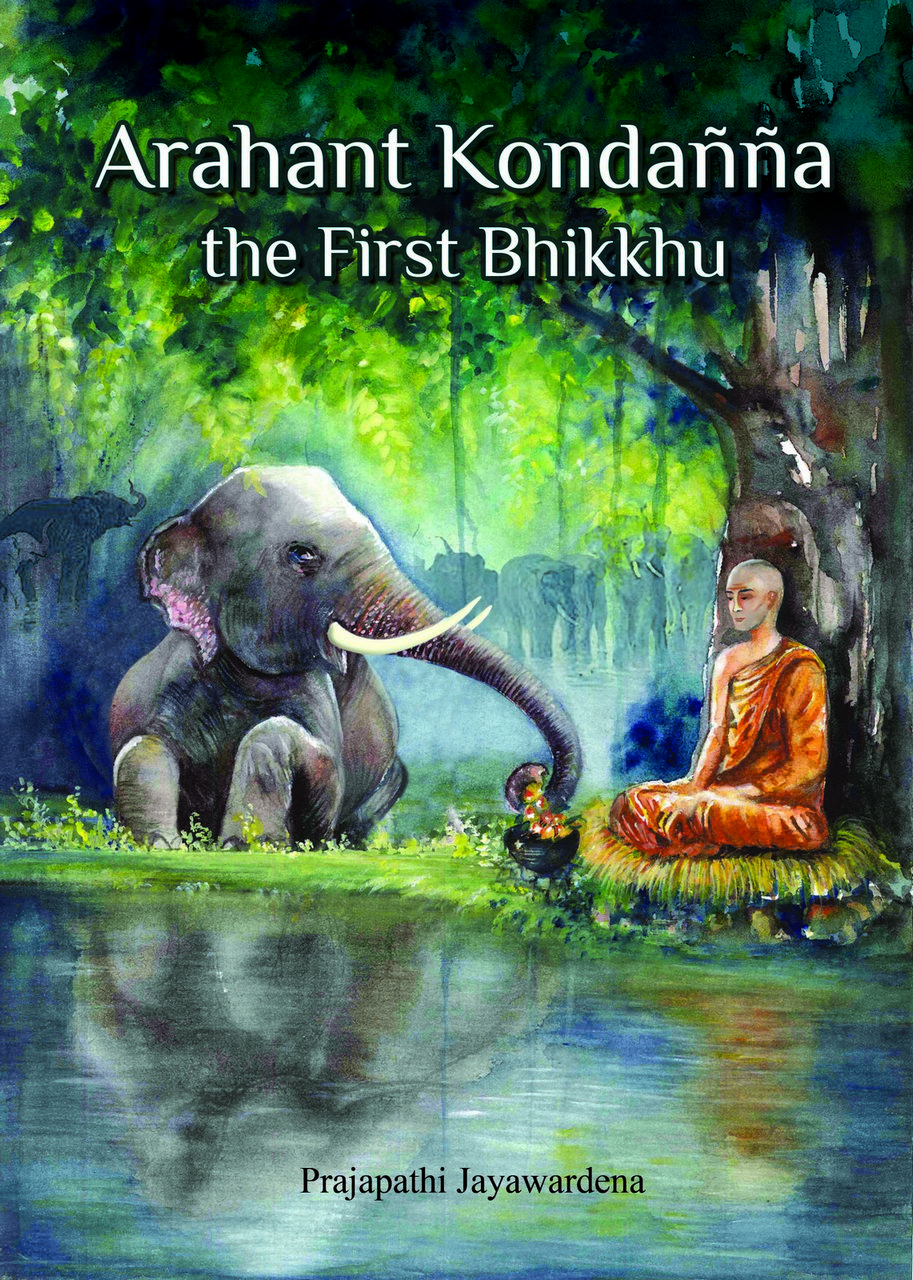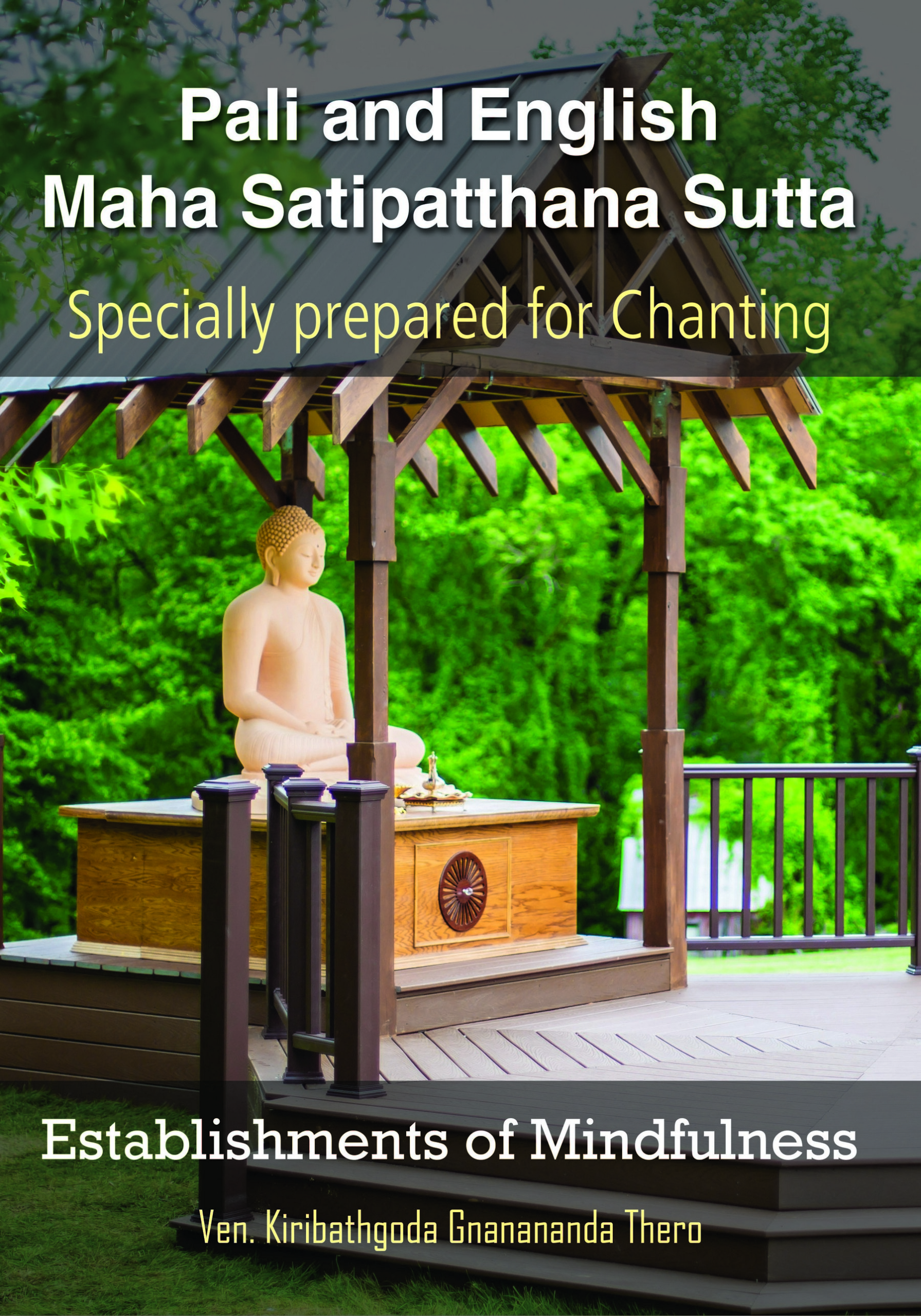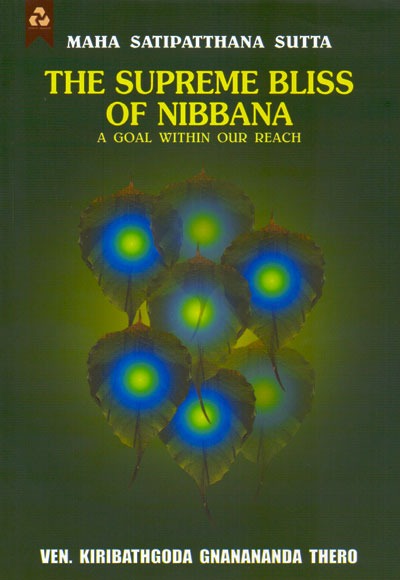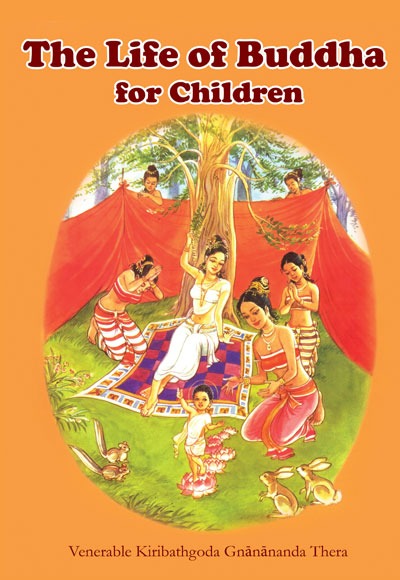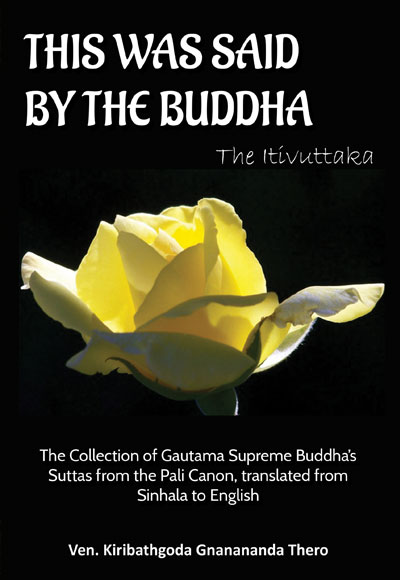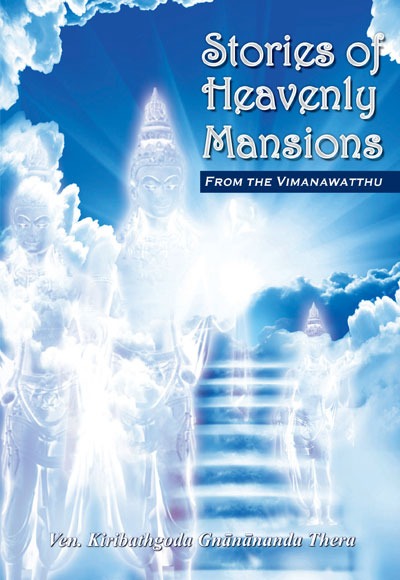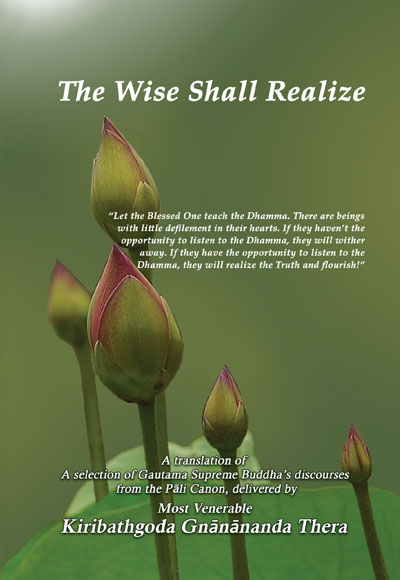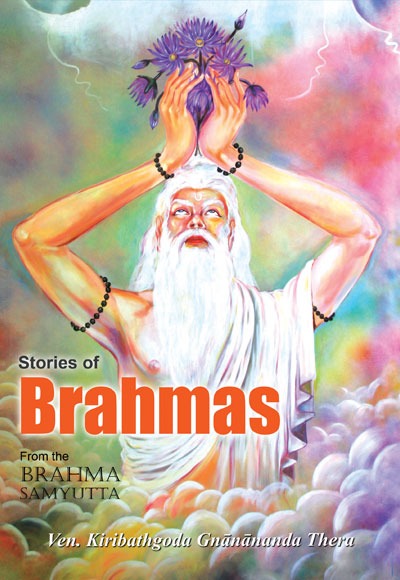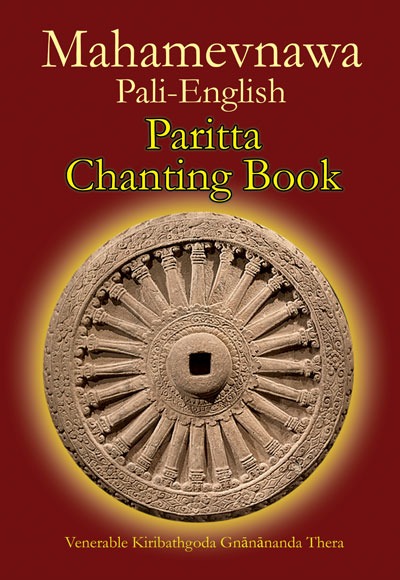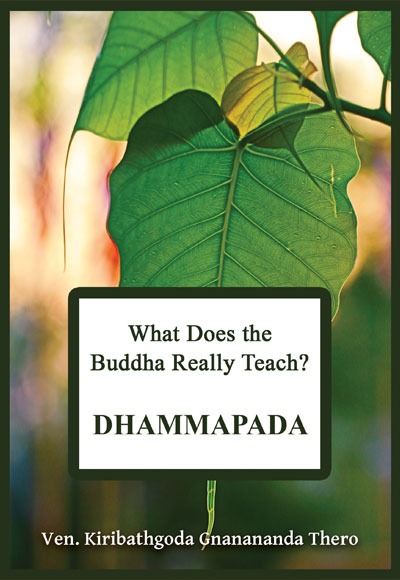This book contains a minute fraction of the infinite knowledge of the Buddha. It describes in detail the Buddha’s marvelous realization about the law of Dependent Origination (paṭiccasamuppāda). After realizing the truth about Dependent Origination, the Buddha taught us that the endless suffering in the cycle of birth and death is a result of the principle of cause and effect. The path to Enlightenment according to the Dhamma is entirely dependent on one’s own effort. Read this book carefully and remember well the vital points of Dhamma it contains. Strive hard to acquire wisdom and develop wise consideration. Realization of the Dhamma does not happen without effort!
In Sri Lanka
All of these books are available at the book shops in our monasteries and our online store Mahamegha.store
In Colombo they are available at the Tripitaka Sadaham Poth Medura in the YMBA building on Austin Place. Phone 01 14 255 987.
Contents
Introduction
- Making Intelligent Choices
- The Amazing Power of the Mind
- The Prerequisites for Wisdom
- The Buddha’s Marvelous Realization
- Aging-and-Death
- Birth
- Bhava
- Clinging
- Craving
- Feeling
- Contact
- The Six Sense Bases
- Name-and-Form
- Consciousness
- Formations
- Ignorance
- Realization
- Cessation
- Essential Points to Keep in Mind
Bibliography
Dependent Origination – The Profound Teaching of the Buddha
Ven. Ananda approached the Blessed One and, on arrival, having bowed down to the Blessed One, sat to one side. As he was sitting there he said to the Blessed One: “It’s amazing, lord, it’s astounding, how deep this dependent origination is, and how deep its appearance, and yet to me it seems as clear as clear can be.”
[The Buddha:] “Don’t say that, Ananda. Don’t say that. Deep is this dependent origination, and deep its appearance. It’s because of not understanding and not penetrating this Dhamma that this generation is like a tangled skein, a knotted ball of string, like matted rushes and reeds, and does not go beyond transmigration, beyond the planes of deprivation, woe, and bad destinations.-The Great Discourse on Causation (Mahānidāna Sutta)-
The Buddha’s Well-Proclaimed Dhamma
The Buddha was an Arahant who eradicated all mental defilements. He was completely free of greed, hatred, and delusion. The Dhamma realized by the Buddha was not taught to him by a god or a teacher. The Blessed One understood the truth of life through his own experience, effort, and wise consideration.
One usually gains understanding by applying one’s intellect to knowledge acquired with external help. What happened in the case of the Buddha, however, was utterly different and marvelous. Such an amazing occurrence is unheard of since the life of the Buddha. Although the Taj Mahal, the Great Wall of China, and the Leaning Tower of Pisa may appear as wonders to ordinary people, in reality, there is nothing wonderful about them. Any number of similar structures may be built in the future through the blood, sweat, and tears of people. What wisdom or profound realization of life could one gain from gazing at these buildings? Absolutely none!
There is only one true wonder in the world; it is the wonder of how someone born as a human being achieved the highest state of Enlightenment without anyone’s help, using only the power of his own mind. Only the Buddha was able to achieve this marvelous realization. The sublime Dhamma is not limited to unraveling the truth about the lives of human beings. The Buddha’s teaching contains a clear and rational explanation of how the fate of all living beings, including devas, Brahmas, Māras, ghosts, animals, and those in the hells is determined.
His infinite wisdom and marvelous realization encompassed all phenomena and fields of knowledge. The Buddha did not develop methods of understanding the world through experiments using physical instruments. He acquired his knowledge in the laboratory of meditation using the instrument of his own finely tuned wisdom. The brightness of the sun’s rays dispels darkness, yet the sun’s brightness is limited. While one half of the earth is bathed in sunlight, the other half is in darkness. The inner workings of the mind cannot be observed with sunlight. The infinite wisdom of the Buddha, however, has no such limitations. His wisdom can instantly shine its light in any direction and its radiance far surpasses the brightness of the sun. The Buddha conquered the world with the power and light of this infinite wisdom.
What is this wonderful and infinite wisdom? What is this marvelous realization? We can find the answers in the gift the Blessed One bestowed upon us—the gift of the sublime Dhamma.
The great Emperor Asoka’s son, Arahant Mahinda, brought the Buddha’s Dhamma from India to Sri Lanka. Having ordained in India under Arahant Moggalīputtatissa and attained Arahantship the very same day he was ordained, within a short period of three years he was able to commit the Dhamma and the Discipline to memory precisely as taught by the Buddha and faithfully preserved by the great Arahants at the First Saṅgha Council. Arahant Mahinda did not arrive in Sri Lanka with limited knowledge of only a few passages of Dhamma or with doubts about the Dhamma. By that time, he had achieved an unshakable confidence in the Dhamma along with a complete mastery of the Dhamma and Discipline.
He possessed virtue, concentration, wisdom, liberation, and the knowledge and vision of liberation. Arahant Mahinda thoroughly taught the Dhamma to the Sinhalese people in Sri Lanka. He ordained Sri Lankan lay disciples and taught the Dhamma and Discipline in the Pāli language. Arahant Mahinda only used the Sinhala language to explain the Dhamma and Discipline. These explanations are referred to as aṭṭhakathā,or commentaries.
Although stories and opinions originating from Sri Lanka were added to these commentaries, over time, they evolved independently without deviating from the original teachings of the Buddha. As time passed, the monks in India came to know about these commentaries written in Sinhala. A monk named venerable Buddhaghosa came from India to Sri Lanka to translate these commentaries from the Sinhala to the Pāli. He did not translate the Buddha’s Discourses (sutta) from Sinhala to Pāli. It is evident that the Dhamma and Discipline existed in the Pāli language at that time, not in Sinhala. Venerable Buddhaghosa did not alter or translate the pure Dhamma and Discipline taught by the Buddha in Pāli in even in the slightest way. Unfortunately, uninformed lay people, as well as monks, erroneously claim that venerable Buddhaghosa altered the original teachings of the Buddha contained in the Dhamma and Discipline.
Nowadays, we see some lay people and monks alike haphazardly change, misinterpret, and distort the pure Dhamma of the Buddha and its true meaning. This disrespectful treatment of the well-proclaimed Dhamma is a cause for serious concern. It is causing great harm to the longevity of the Buddha’s pure teachings. Such deliberate distortions of the pure Dhamma will inevitably result in the disappearance of the path to Nibbāna. The corruption of the Dhamma gives rise to futile arguments. It leads to the growth of various factions led by unscrupulous individuals who arbitrarily distort the Dhamma for their own selfish gain and glory. Any unfortunate individual who willfully misrepresents the teachings of the Buddhais sure to be reborn in the plane of misery without even the slightest opportunity of hearing the pure Dhamma again.
We should beware that we do not commit such unwholesome deeds. As well, we must be careful not to take part in any such irresponsible activities that harm Gotama Buddha’s pure teachings.
At times, we hear some strange opinions about the Dhammabeing expressed by certain lay people and monks. For example, they make disparaging remarks about studying the Dhamma: “Why do we need to know so many discourses? Wouldn’t it be sufficient to know just one discourse? In the time of the Buddha, they did not study as many suttas to realize the Dhamma.” Sadly, this is a clear reflection of their lack of confidence in the Buddha, their inadequate knowledge of the Dhamma, and their distorted attitudes toward the pure wordsof the Buddha. Such individuals should be avoided at all costs.
The only solution to problem of endless suffering in saṃsāra is to learn and follow the original discourses of the Gotama Buddha preserved in the Sutta Piṭaka in the Pāli language.
The pure teachings of the Buddha are well proclaimed (svākkhāto)from beginning to end. The excellent beginning of the Dhamma (ādikalyāṇaṃ) is virtue, or morality. The excellent middle (majjhekalyāṇaṃ) is concentration. The excellent end (pariyosānakalyāṇaṃ) is wisdom. The Dhammaconsists of very pure meanings (sātthaṃ). It is explained in a crystal-clear manner (sabyañjanaṃ). It shows how to develop one’s life all the way to the complete and utterly pure state of Arahantship (kevalaparipuṇṇaṃ parisuddhaṃ brahmacariyaṃ abhivadanti). These are the excellent qualities of the noble Dhamma.
We should not learn this Dhammato waste time by engaging in arguments and debates. Our aim should be to understand the Dhammaand become free from mental and physical suffering. As well, our aim should be to understand the reality of life and achieve ultimate peace.
Consider the meaning of the following stanza on the Dhammafrom the Jewel Discourse (Ratana Sutta), which Buddhists recite frequently:
Khayaṃ virāgaṃ amataṃ paṇītaṃ
yadajjhagā sakyamunī samāhito
na tena dhammena samatthi kiñci
idampi dhamme ratanaṃ paṇītaṃ
etena saccena suvatthi hotu.
The calm Sakyan sage found the undefiled
dispassionate, deathless,Nibbāna;
there is nothing equal to that state.
In the Dhammathere is this precious jewel.
By this truth, may there be well-being!
When we say, buddhaṃ saraṇaṃ gacchāmi,we take refuge in the Buddha who possessed nine incomparable qualities. These nine qualities are explained in the well-known verse iti’pi so bhagavā arahaṃ… It is shameful if one gives up refuge in the Perfectly Self-Enlightened One for the sake of gain and praise, marriage, or any other petty consideration. It would be like exchanging a precious ornament of gold, silver, and pearls for something worthless. Giving up refuge in the Buddha will not contribute to our well-being in any way. We should try to learn at least a little bit about the immeasurable virtues of the Buddha in whom we have taken refuge. We should recall these great qualities and rejoice in the good fortune we have gained.
When we say: dhammaṃ saraṇaṃ gacchāmi, we take refuge only in the original Dhammataught by the Buddha. The six incomparable qualities of the Buddha’s authentic Dhammaare explained in the well-known verse svākkhāto bhagavatā dhammo…Refuge in the Blessed One’s well-proclaimed Dhammaexcludes any reliance on distorted, false teachings being passed off as “Dhamma.” We should seek refuge only in the sublime Dhammaconsisting of virtue, concentration, and wisdom. We should put our complete trust in the profoundly clear Dhammathat eloquently explains the Noble Eightfold Path, the Four Noble Truths, kamma(Skt. karma),and Dependent Origination.
Similarly, when we say: saṅghaṃ saraṇaṃ gacchāmi, we take refuge in the community of noble disciples of the Buddha. The noble virtues of the Saṅgha are clearly explained in the well-known verse supaṭipanno bhagavato sāvakasaṅgho…The community of noble disciples comprises individuals who have attained the various stages along the path to Enlightenment—from stream-entry to Arahantship.
When we acquire a clear and thorough knowledge of the well-proclaimed Dhamma, it helps us to gradually eliminate our doubts regarding the Dhamma. Our confidence in the Dhamma will gradually stabilize and become steadfast. In this way, we as disciples will succeed in establishing a solid foundation in the Gotama Buddha’s Dispensation. Then, we need not fear this life or the next. We can definitely experience joy and happiness in this very life itself, which also acts as a springboard to be reborn in a good destination after death. Rebirth in a good destination provides us an opportunity to hear the pure Dhammaagain. We will then have the rare good fortune of progressing all the way to the supreme bliss of Nibbāna.
This book contains a minute fraction of the infinite knowledge of the Buddha. It describes in detail the Buddha’s marvelous realization about the law of Dependent Origination (paṭiccasamuppāda). After realizing the truth about Dependent Origination, the Buddha taught us that the endless suffering in the cycle of birth and death is a result of the principle of cause and effect.
The path to Enlightenment according to the Dhammais entirely dependent on one’s own effort. Read this book carefully and remember well the vital points of Dhammait contains. Strive hard to acquire wisdom and develop wise consideration. Realization of the Dhammadoes not happen without effort!

